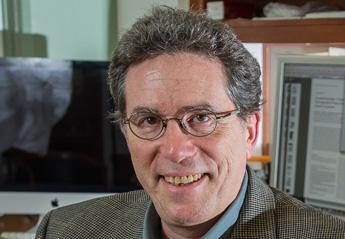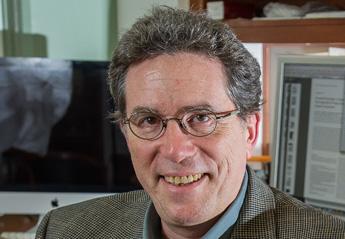
Credit: Caltech
CHAPEL HILL, NC – The UNC School of Medicine has awarded the 17th Perl-UNC Neuroscience Prize to David Anderson, PhD, the Seymour Benzer Professor of Biology at the California Institute of Technology for "his discovery of neural circuit mechanisms controlling emotional behaviors."
Anderson will visit Chapel Hill April 12 to receive the prize — a $20,000 cash award — and give a lecture on his work at 3 p.m. in room G202 in the Medical Biomolecular Research Building (MBRB), with a reception to follow.
"David is a remarkable scientist who conducted seminal research uncovering the neural circuits key to innate behaviors associated with emotional states, such as defensive behaviors and aggression," said Mark Zylka, PhD, director of the UNC Neuroscience Center. "Frankly, David could have also won the Perl Prize for the important work he accomplished earlier in his career on neural stem cell fate and differentiation. We look forward to welcoming him here in Chapel Hill as our 17th recipient of this prize honoring the late Dr. Edward Perl."
Anderson, who is the Director of the Tianqiao and Chrissy Chen Institute for Neuroscience at Caltech and a Howard Hughes Medical Institute investigator, received his undergraduate degree from Harvard and doctorate from the Rockefeller University. He joined Caltech in 1986. He was the first scientist to isolate a multipotent self-renewing stem cell for neurons and glial cells, the two main cell types in the brain. Anderson's lab identified growth factors and regulatory proteins that control whether stem cells differentiate into neurons or glial cells. He also made critical contributions to understanding nerve-blood vessel interactions.
Anderson is now using cutting-edge techniques to map and manipulate neural circuits that underlie emotional behaviors in both mice and fruit flies. These innate behavioral responses and associated internal states form the evolutionary underpinnings of emotional behavior in higher organisms. These studies may ultimately aid in a better understanding of human psychiatric disorders.
In 2007, Anderson was elected to the National Academy of Sciences.
"I am both surprised and thrilled to have been chosen for this prestigious award by the prominent neuroscientists on the Perl Prize committee, which has shown such exceptional taste in its selection of previous awardees," Anderson said. "The recognition that this prize bestows belongs equally to the talented students and postdoctoral researchers who have trained in my laboratory, without whose effort and brilliance the work that is honored here would not have come to fruition."
###
The Perl-UNC Neuroscience Prize is increasingly well known among biomedical scientists. Six of its previous winners went on to win the Nobel Prize in Physiology or Medicine or the Nobel Prize in Chemistry. Two other Perl-UNC Neuroscience Prize recipients went on to win the Kavli Prize, which to neuroscientists has become nearly as prestigious as the Nobel.
The Perl-UNC Neuroscience Prize, established in 2000, is named after former UNC professor Edward Perl, MD, who discovered that a specific type of sensory neuron responded to painful stimuli. Before this, scientists thought that neurons responded to all stimuli and then the pain responses were sorted out in the spinal cord. The discovery had a major impact on the field of pain research, particularly in the development of pain medications.
Dr. Perl passed away in 2014. Read more about his research in this remembrance: http://bit.ly/2j4YaAp
Along with Mark Zylka, the Perl-UNC Neuroscience Prize selection committee consists of Tom Jessell, PhD, HHMI investigator and the Claire Tow Professor in the Department of Neuroscience and the Department of Biochemistry and Molecular Biophysics at Columbia University; William Snider, MD, professor of cell biology and physiology and founding director of the UNC Neuroscience Center; Ben Philpot, PhD, professor of Cell Biology and Physiology and associate director of the UNC Neuroscience Center; Thomas Albright, PhD, Conrad T. Prebys Chair in Vision Research at the Salk Institute; Vanessa Ruta, PhD, the Gabriel H. Reem & Herbert J. Kayden Assistant Professor of Neurophysiology & Behavior at Rockefeller University; Julie Kauer, professor of neurosciences & medical sciences at Brown University; and Regina Carelli, the Stephen B. Baxter Distinguished Professor and Associate Chair of the Department of Psychology & Neuroscience at the University of North Carolina.
Media Contact
Mark Derewicz
[email protected]
984-974-1915
@UNC_Health_Care





